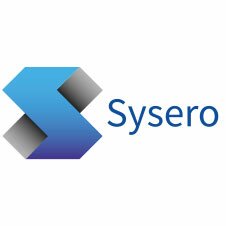Sysero: The Tech-Enabled Law Firm – 3 Trends to Watch 2023
The legal landscape has evolved tremendously over the past few years, with the pandemic and shifting market conditions forever reshaping the way law firms work. From the rise of hybrid working and workflow automation to adopting a more client-centric approach, law firms around the world have faced pervasive ongoing change and challenges.
With a new year just around the corner, more change and fresh challenges are on the horizon. As we head into 2023, there are three main trends that promise to shape the future for modern law firms.
Legal Technology Takes a Leading Role
Heading into 2023, technology transformation will be a top priority on law firm agendas. Increased competition, tech-savvy clients, and a greater need for efficiency are pushing law firm leaders to place increased emphasis and investment on the technology that powers their firms.
New and improved legal technology capabilities have the ability to drive enhanced client experience, higher performance, and better resilience and responsiveness. Legal technology will be a driving force of change in law firms in the year ahead, with a focus on automated and cloud-based solutions.
The rise of automated legal technologies has enabled firms to create standardised solutions for the delivery of legal processes, in turn increasing efficiency and profitability. So, it’s no surprise that more than half of legal IT leaders say their firms are prioritising investment in process automation technologies, such as business intake and compliance tools.
At the same time, cloud-based technologies are providing firms with greater flexibility, scalability and agility. Cloud-based solutions like contract management, document generation, and client intake offer firms a more modern way forward in the year ahead and an improved way for collaborating with clients across hybrid environments.
Move to Client-Centric Technologies
Legal clients are continually becoming more technologically advanced, and they expect their firms to keep pace. Client demand for tech-enabled law firms hit a record high in 2022, with Wolters Kluwer reporting that 70% of legal departments already ask law firms about technology, which is expected to grow to 97% within the next three years.
As client expectations continue to shift, technology will provide the solution to meeting – and exceeding – client expectations. Clients are moving towards more agile working practices, and they desire more flexible ways of working with their legal partners. While innovative digital technologies like client workflow portals and Know-Your-Client solutions have provided a competitive advantage for firms in the past, they are now becoming standard practice in a client-centric firm. Firms that want to stay competitive and continue to grow in the year ahead will need to recognise this shift to digitally-enabled client service delivery, and provide new and innovative ways to leverage legal technology to win and retain clients.
Greater Focus on Compliance and Security
Cyber threats and compliance remain a key concern across the legal sector, and heading into 2023, new challenges are on the horizon. This year brought with it increased cybersecurity challenges, with 78% of Top 100 law firms in the UK indicating that this is something that they are extremely or somewhat concerned about.
At the same time, law firms face greater accountability in demonstrating data security and regulatory compliance than ever before. As we approach 2023, law firms must not only be sure that they are doing everything they can to protect their clients’ data, but they also must be able to prove their actions to auditors.
As it becomes more difficult to manage cyber threats, many firms are taking the steps to imbed security into their internal processes. Fortunately, technology advancements have made it easier to secure data and ensure compliance simultaneously. For example, Sysero gives users the ability to create custom data retention policies to govern how and when data is erased, as well as the option to pseudonymise data.
In today’s hybrid world, it’s also critical to be able to balance security with flexibility. Hybrid cloud workflows provide a secure solution by enabling firms to capture client data via the public cloud, and then transfer data to their private cloud for secure, safe and compliant storage.
With 2023 quickly approaching, now’s the time to review the technical capabilities of your firm and identify areas for improvement. The new year is an ideal time to take the opportunity to embrace change, welcome new innovations, and transform your firm’s way of working.



